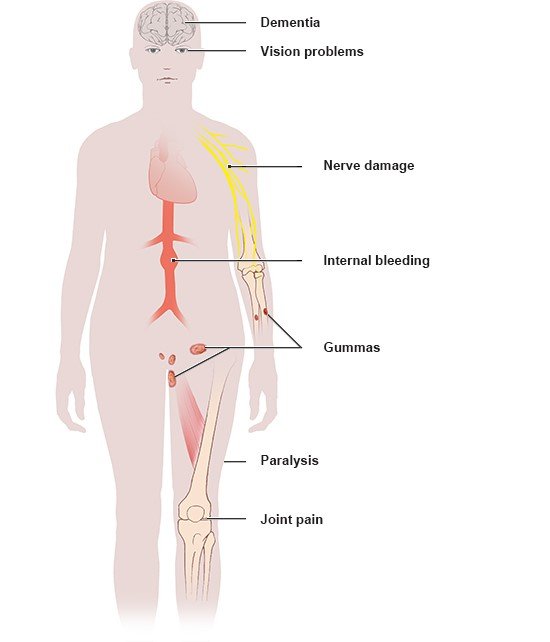Buitrago-Garcia D, Marti-Carvajal AJ, Jimenez A et al. Antibiotic therapy for adults with neurosyphilis. Cochrane Database Syst Rev 2019; (5): CD011399.
Deutsche Gesellschaft für Neurologie (DGN). Neurosyphilis (S1-Leitlinie). AWMF-Registernr.: 030-101. 2020.
Deutsche STI-Gesellschaft (DSTIG). Diagnostik und Therapie der Syphilis (S2k-Leitlinie). AWMF-Registernr.: 059-002. 2021.
Deutsche STI-Gesellschaft (DSTIG). Sexuell übertragbare Infektionen (STI): Beratung, Diagnostik und Therapie (S2k-Leitlinie). AWMF-Registernr.: 059-006. 2018.
Lin JS, Eder M, Bean S. Screening for Syphilis Infection in Pregnant Women: A Reaffirmation Evidence Update for the U.S. Preventive Services Task Force. (AHRQ Evidence Syntheses; No. 167). 2018.
Nenoff P, Manos A, Ehrhard I et al. Nichtvirale sexuell übertragene Infektionen – Epidemiologie, Klinik, Labordiagnostik und Therapie. Teil 3: Treponemen, Gardnerella und Trichomonaden. Hautarzt 2017; 68(2): 136-148.
Robert Koch-Institut (RKI). RKI-Ratgeber Syphilis. 2020.
Walker GJ, Walker D, Molano Franco D et al. Antibiotic treatment for newborns with congenital syphilis. Cochrane Database Syst Rev 2019; (2): CD012071.
IQWiG health information is written with the aim of helping people understand the advantages and disadvantages of the main treatment options and health care services.
Because IQWiG is a German institute, some of the information provided here is specific to the German health care system. The suitability of any of the described options in an individual case can be determined by talking to a doctor. informedhealth.org can provide support for talks with doctors and other medical professionals, but cannot replace them. We do not offer individual consultations.
Our information is based on the results of good-quality studies. It is written by a team of health care professionals, scientists and editors, and reviewed by external experts. You can find a detailed description of how our health information is produced and updated in our methods.


